
7 You who turn justice into bitterness and cast righteousness to the ground
8 (he who made the Pleiades and Orion, who turns blackness into dawn and darkens day into night, who calls for the waters of the sea and pours them out over the face of the land— the LORD is his name-
9 he flashes destruction on the stronghold and brings the fortified city to ruin),
10 you hate the one who reproves in court and despise him who tells the truth.
11 You trample on the poor and force him to give you grain. Therefore, though you have built stone mansions, you will not live in them; though you have planted lush vineyards,you will not drink their wine.
12 For I know how many are your offenses and how great your sins. You oppress the righteous and take bribes and you deprive the poor of justice in the courts.
13 Therefore the prudent man keeps quiet in such times, for the times are evil.
8 (he who made the Pleiades and Orion, who turns blackness into dawn and darkens day into night, who calls for the waters of the sea and pours them out over the face of the land— the LORD is his name-
9 he flashes destruction on the stronghold and brings the fortified city to ruin),
10 you hate the one who reproves in court and despise him who tells the truth.
11 You trample on the poor and force him to give you grain. Therefore, though you have built stone mansions, you will not live in them; though you have planted lush vineyards,you will not drink their wine.
12 For I know how many are your offenses and how great your sins. You oppress the righteous and take bribes and you deprive the poor of justice in the courts.
13 Therefore the prudent man keeps quiet in such times, for the times are evil.
David Kidwell/Associated Press from NYT
Prosecutors say Judges Michael T. Conahan, and Mark A. Ciavarella Jr., above, took kickbacks to send teenagers to detention centers.
“I felt like I had been thrown into some surreal sort of nightmare,” said Hillary, 17, who was sentenced in 2007. “All I wanted to know was how this could be fair and why the judge would do such a thing.”
Answers became clearer on Thursday as the Federal Judge, Mark A. Ciavarella Jr., and a colleague, Michael T. Conahan, appeared in federal court in Scranton, Pa., to plead guilty to wire fraud and income tax fraud for taking more than $2.6 million in kickbacks to send teenagers to two privately run youth detention centers run by PA Child Care and a sister company, Western PA Child Care.
While prosecutors say that Judge Conahan, 56, secured contracts for the two centers to house juvenile offenders, Judge Ciavarella, 58, was the one who carried out the sentencing to keep the centers filled.
“In my entire career, I’ve never heard of anything remotely approaching this,” said Senior Judge Arthur E. Grim, who was appointed by the State Supreme Court this week to determine what should be done with the estimated 5,000 juveniles who have been sentenced by Judge Ciavarella since the scheme started in 2003. Many of them were first-time offenders and some remain in detention.
The case has shocked Luzerne County, an area in northeastern Pennsylvania that has been battered by a loss of industrial jobs and the closing of most of its anthracite coal mines.
And it raised concerns about whether juveniles should be required to have counsel either before or during their appearances in court and whether juvenile courts should be open to the public or child advocates.
If the court agrees to the plea agreement, both judges will serve 87 months in federal prison and resign from the bench and bar. They are expected to be sentenced in the next several months. Lawyers for both men declined to comment.
Since state law forbids retirement benefits to judges convicted of a felony while in office, the judges would also lose their pensions.
With Judge Conahan serving as president judge in control of the budget and Judge Ciavarella overseeing the juvenile courts, they set the kickback scheme in motion in December 2002, the authorities said.
They shut down the county-run juvenile detention center, arguing that it was in poor condition, the authorities said, and maintained that the county had no choice but to send detained juveniles to the newly built private detention centers.
Prosecutors say the judges tried to conceal the kickbacks as payments to a company they control in Florida.
Though he pleaded guilty to the charges Thursday, Judge Ciavarella has denied sentencing juveniles who did not deserve it or sending them to the detention centers in a quid pro quo with the centers.
But Assistant United States Attorney Gordon A. Zubrod said after the hearing that the government continues to charge a quid pro quo.
“We’re not negotiating that, no,” Mr. Zubrod said. “We’re not backing off.”
No charges have been filed against executives of the detention centers. Prosecutors said the investigation into the case was continuing.
For years, youth advocacy groups complained that Judge Ciavarella was unusually harsh. He sent a quarter of his juvenile defendants to detention centers from 2002 to 2006, compared with a state rate of 1 in 10. He also routinely ignored requests for leniency made by prosecutors and probation officers.
“The juvenile system, by design, is intended to be a less punitive system than the adult system, and yet here were scores of children with very minor infractions having their lives ruined,” said Marsha Levick, a lawyer with the Philadelphia-based Juvenile Law Center.
“There was a culture of intimidation surrounding this judge and no one was willing to speak up about the sentences he was handing down.”
Prosecutors say Judges Michael T. Conahan, and Mark A. Ciavarella Jr., above, took kickbacks to send teenagers to detention centers.
“I felt like I had been thrown into some surreal sort of nightmare,” said Hillary, 17, who was sentenced in 2007. “All I wanted to know was how this could be fair and why the judge would do such a thing.”
Answers became clearer on Thursday as the Federal Judge, Mark A. Ciavarella Jr., and a colleague, Michael T. Conahan, appeared in federal court in Scranton, Pa., to plead guilty to wire fraud and income tax fraud for taking more than $2.6 million in kickbacks to send teenagers to two privately run youth detention centers run by PA Child Care and a sister company, Western PA Child Care.
While prosecutors say that Judge Conahan, 56, secured contracts for the two centers to house juvenile offenders, Judge Ciavarella, 58, was the one who carried out the sentencing to keep the centers filled.
“In my entire career, I’ve never heard of anything remotely approaching this,” said Senior Judge Arthur E. Grim, who was appointed by the State Supreme Court this week to determine what should be done with the estimated 5,000 juveniles who have been sentenced by Judge Ciavarella since the scheme started in 2003. Many of them were first-time offenders and some remain in detention.
The case has shocked Luzerne County, an area in northeastern Pennsylvania that has been battered by a loss of industrial jobs and the closing of most of its anthracite coal mines.
And it raised concerns about whether juveniles should be required to have counsel either before or during their appearances in court and whether juvenile courts should be open to the public or child advocates.
If the court agrees to the plea agreement, both judges will serve 87 months in federal prison and resign from the bench and bar. They are expected to be sentenced in the next several months. Lawyers for both men declined to comment.
Since state law forbids retirement benefits to judges convicted of a felony while in office, the judges would also lose their pensions.
With Judge Conahan serving as president judge in control of the budget and Judge Ciavarella overseeing the juvenile courts, they set the kickback scheme in motion in December 2002, the authorities said.
They shut down the county-run juvenile detention center, arguing that it was in poor condition, the authorities said, and maintained that the county had no choice but to send detained juveniles to the newly built private detention centers.
Prosecutors say the judges tried to conceal the kickbacks as payments to a company they control in Florida.
Though he pleaded guilty to the charges Thursday, Judge Ciavarella has denied sentencing juveniles who did not deserve it or sending them to the detention centers in a quid pro quo with the centers.
But Assistant United States Attorney Gordon A. Zubrod said after the hearing that the government continues to charge a quid pro quo.
“We’re not negotiating that, no,” Mr. Zubrod said. “We’re not backing off.”
No charges have been filed against executives of the detention centers. Prosecutors said the investigation into the case was continuing.
For years, youth advocacy groups complained that Judge Ciavarella was unusually harsh. He sent a quarter of his juvenile defendants to detention centers from 2002 to 2006, compared with a state rate of 1 in 10. He also routinely ignored requests for leniency made by prosecutors and probation officers.
“The juvenile system, by design, is intended to be a less punitive system than the adult system, and yet here were scores of children with very minor infractions having their lives ruined,” said Marsha Levick, a lawyer with the Philadelphia-based Juvenile Law Center.
“There was a culture of intimidation surrounding this judge and no one was willing to speak up about the sentences he was handing down.”














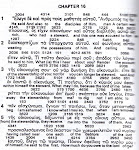








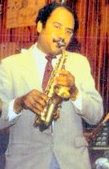







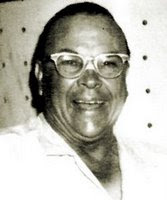




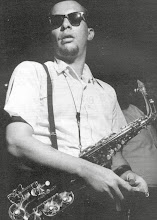




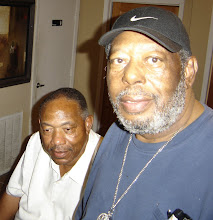













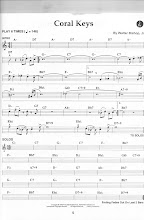

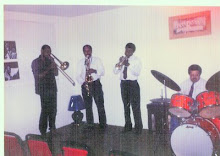






No comments:
Post a Comment